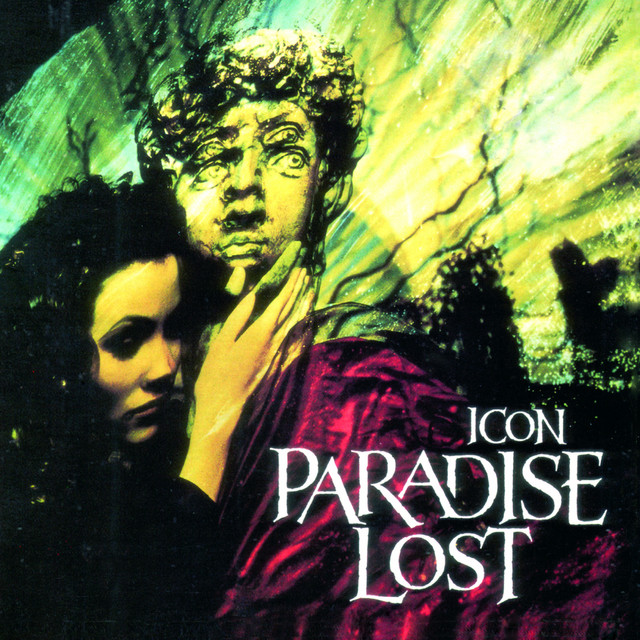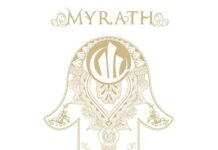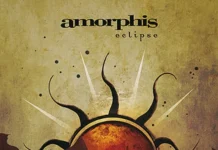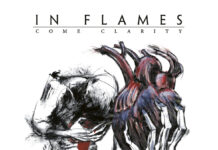In May 2023, the British doom-metal monolith, PARADISE LOST, announced they will be re-recording their landmark album “Icon” in order to celebrate its 30th anniversary. Originally released on September 28th, 1993, via Music for Nations, the album proved highly influential to the development of the new Gothic metal subgenre by bringing the SISTERS OF MERCY element more prominently into the metal context. These British doomsters were perhaps the first act to coin the term, “Gothic metal,” and this particular album was a rather streamlined selection of songs that captured the very essence of this new aesthetic. Being the band’s fourth studio album overall at that point, “Icon” marked a tad more distinct departure from their earlier death-doom sound, although their sound seemed to have evolved with each new release in those early years. In retrospect, it appears that, by the fourth album, the band had reached a pleasant equilibrium between the atmospheric, slow-crushing heaviness and the softer, more melodic approach. Even with its few minor shortcomings, the album has stood the test of time pretty well. It can be considered a career-defining endeavor, even, so it’s no wonder these Gothic gents want to give it another go.

At the time of its release, I must admit, “Icon” did not exactly impress me; I thought the band sounded like the depressed version of METALLICA and, well, there was this thing called grunge happening all over the place that I’d personally found more gratifying as an outlet for my adolescent angst. Later, I became infatuated with PARADISE LOST, specifically, because (at the time) it sounded like the downhearted cousin of the “Black Album”-era METALLICA. Now, years later, it is quite intriguing to notice certain similarities between that gargantuan album classic and this particular PARADISE LOST landmark. First of all, vocalist Nick Holmes‘ early singing style was not that far from the idiosyncratic, gruff belting of James Hetfield. Then, I take it is the band’s lead guitarist, Gregor Mackintosh, who keeps professing his undying love for those delicious wah-wah blurts throughout the album – a trait he certainly shares with one Kirk Hammett. Lastly, perhaps it was the zeitgeist of the early 1990s but, for some reason, it seems bands (not to mention the audiences) were more open to traversing uncharted terrains and boldly going where no one had gone before. I mean just look at the releases of the era – such as this one. I bet the label executives would have had a hard time coming to terms with a release mixing something like METALLICA and SISTERS OF MERCY, say, in 1986.
Speaking of spectral wah-wah moments, the album offers two ear-candy tracks in this respect. The guitar solo in “Poison” is quite delicious and then, the main riffs, let alone the guitar solo, in “Widow” are something to lend an ear to. The whole song resonates thick with an endearingly 1990s-tinted aura. For a PARADISE LOST endeavor, the song is pronouncedly up-tempo but, to even things out, the album comes jam-packed with a good few slow-crushing beauties, such as the haunting opener, “Embers Fire,” “Joys of the Emptiness,” and “True Belief,” the last of which – especially during those clean-vocal passages – now triggers nothing short of goosebumpey flashbacks of WOODS OF YPRES, even. According to some hardcore fans, the song became the band’s anthem for a time and I can easily see why.
About those minor blemishes, then… Well, for one thing, the album is quite long, even by the standards of the 1990s, with its 50-minute playtime; “Christendom,” for example, might have worked better as a B-side, despite the fact that the angelic vocals featured by Denise Bernard offer a nice touch of variety amidst all the gloom and doom. Then, “Shallow Season” struggles to keep the momentum going at all times, nearly becoming an overkill of mindless pentatonic jamming almost as though GRATEFUL DEAD had a doom-metal seizure. Here and there, if you listen very hard, you can also notice how Holmes struggles slightly with his vocals; then again, the vocal department is something that has improved remarkably over the years – and it does charge the news about the re-recording of this particular album with an extra layer of anticipation.
Perhaps a little unexpectedly, the absolutely most Gothic track is the 2-minute instrumental closer, “Deus Misereatur,” which is like a doom-metal impersonation of Ravel‘s “Gaspard de la Nuit.” It sums up the gloomy selection just perfectly, serving as a breather of sorts before you put the album on repeat – because, let’s face it, you will, if only for nostalgia’s sake. Even with its flaws, “Icon” has become an iconic (sorry for the bad pun) installment in the PARADISE LOST canon. While the album was not perhaps their magnum opus from that era – the honor fell to “Draconian Times” (1995) a few years later – “Icon” resonates with the air of an album that has “classic” written all over it.
Written by Jani Lehtinen
Tracklist
- Embers Fire
- Remembrance
- Forging Sympathy
- Joys of the Emptiness
- Dying Freedom
- Widow
- Colossal Rains
- Weeping Words
- Poison
- True Belief
- Shallow Seasons
- Christendom
- Deus Misereatur (instrumental)
Lineup
Nick Holmes – vocals
Matthew Archer – drums
Stephen Edmondson – bass
Aaron Aedy – guitars
Gregor Mackintosh – guitars
Label
Music for Nations





